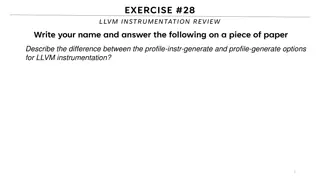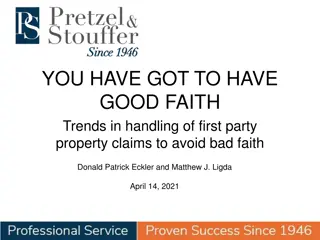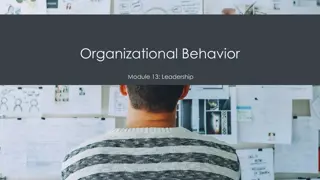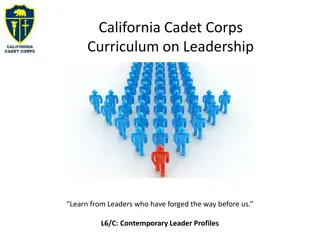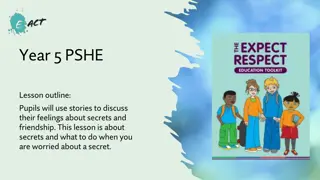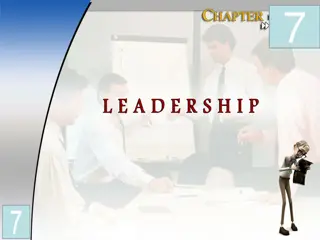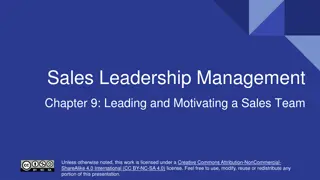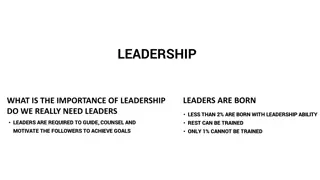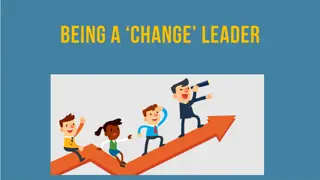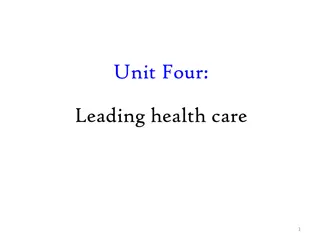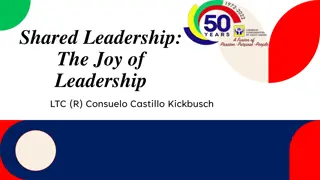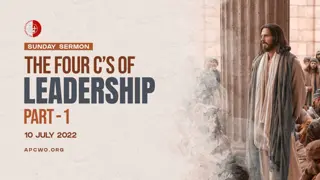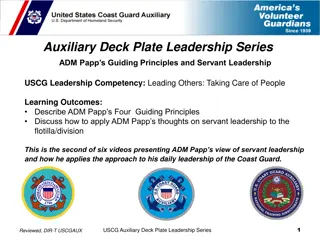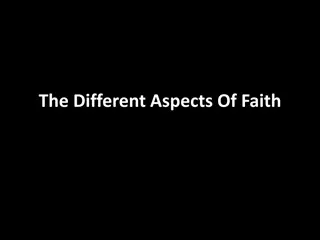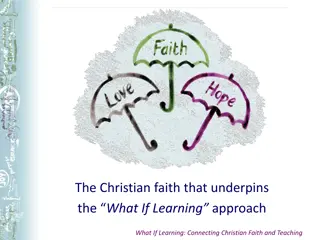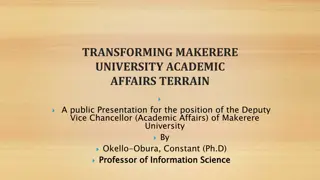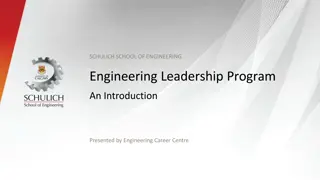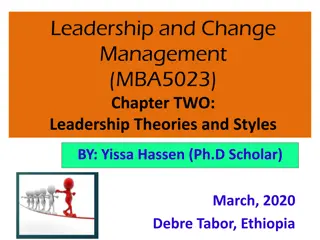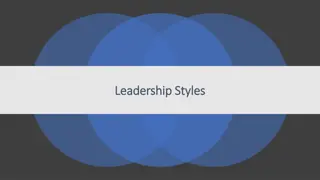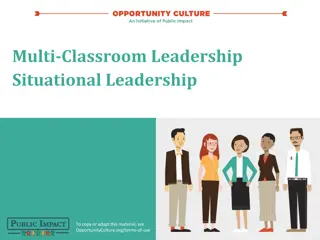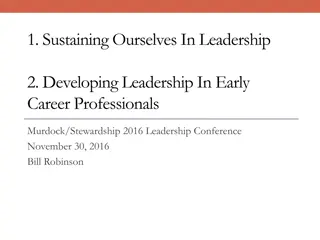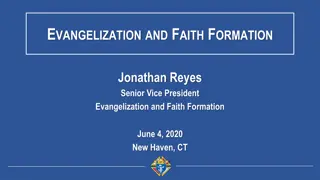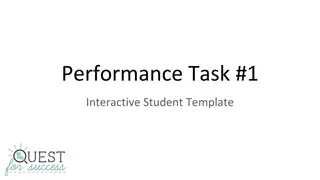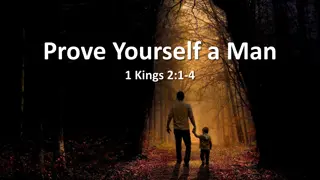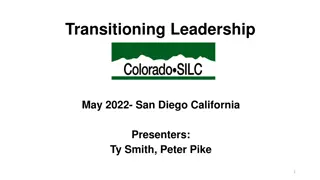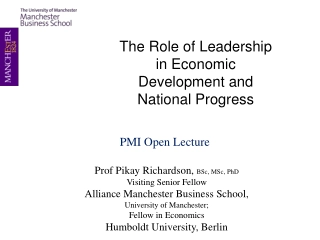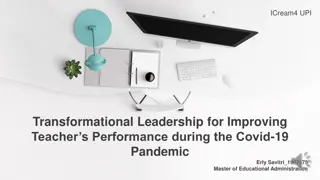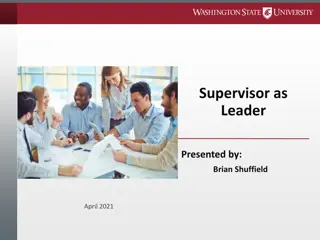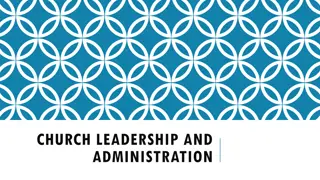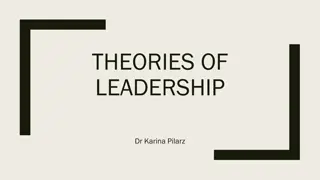Secrets for Effective Faith Community Profile to Find the Best Leadership Match
Unlock the secrets to creating a powerful document that aids in discernment and leads to the best leadership match for your faith community. Learn how to showcase your community's strengths, priorities, and goals, and provide a true reflection of what you have to offer. Discover how to align passions, vitality, and growth to attract the right leaders, and delve into the living faith story of your community, its ministry activities, and mission goals. Take a deep dive into financial viability to understand trends and identify strategies for improvement.
Download Presentation

Please find below an Image/Link to download the presentation.
The content on the website is provided AS IS for your information and personal use only. It may not be sold, licensed, or shared on other websites without obtaining consent from the author. Download presentation by click this link. If you encounter any issues during the download, it is possible that the publisher has removed the file from their server.
E N D
Presentation Transcript
COMMUNITY OF FAITH PROFILE SECRETS FOR AN EFFECTIVE DOCUMENT THAT ASSISTS DISCERNMENT AND CAN LEAD TO THE BEST LEADERSHIP MATCH AVAILABLE
THE REPORT SHOULD BE A TRUE REFLECTION OF YOUR FAITH COMMUNITY. CONTEXT STRENGTHS PRIORITIES GOALS RESOURCES (LEADERS ARE LIIKING FOR A CHALLENGE AND READING MANY PROFILES)
NEEDS RESOURCES Vitality Vitality & Growth are found where these three important realities overlap. PASSIONS
Living Faith Story: The Community What makes this place a special place to live? What opportunities and activities are in the surrounding area? What are the biggest challenges to living here? What do we have to offer? What do you not do very well?
Living Faith Story: Ministry Activities Why do we make this faith community home? List your ministry activities? What makes your Sunday gathering so worth it? What do you wish you could improve? What do you not do well? How are your activities connected to the wider communities? What values seems to most important to your faith community?
Living Faith Story: Mission & Ministry Goals and Passions What are the strengths of your faith community? What are the greatest needs in your community? (Try and name the things that are difficult to talk about) What outreach are you presently engaged in? Review the resource: Mission and Ministry Ideas to Challenge your Faith and Change your Communities Can you identify possibilities that speak to your passions and energy and meet a community need? List possibilities that you feel God could be calling your community to in the next year?
Financial Viability: Have on hand most recent financial reports including indebtedness statements and investments on hand. Also, please provide at least 3 to 6 years of annual reports. What are our financial trends? Are we increasing or decreasing in donations and givers? When was last stewardship campaign? Is it past time? What is our investments trend? What is our debt trend? Can we identify strategies to improve any of the above areas? Can you suggest possibilities for efficiencies? How do we increase income? (Try to tri 10% in expenses and add 10% to income.) Review the financial viability report when completed by treasurer and add to profile.
Demographics: Who do the stats say we are? Provide Stats Can info for the area. https://www12.statcan.gc.ca/census- recensement/2016/dp-pd/prof/index.cfm?Lang=E It can be good to look at population ages and income to start. The latest religious affiliation data is from 2011 and can be searched for here: https://www12.statcan.gc.ca/nhs-enm/2011/dp-pd/prof/index.cfm?Lang=E What surprises are there for us in this data? What opportunities might be presented here for our faith community? Who is missing from our community of faith? What are to opportunities to reach out into this community? How could our facilities be better used by this community?
Position Description: Let s reflect on the priorities of your ministry position. Remember, as a religious office holder of the United Church of Canada who is appointed or called to work with you by the church your clergy is expected to take appropriate leadership when required to support the work of the Region and the General Council. (This will vary according to specific needs over time.) How many hours a week is the position based on? (Full time is 40) What are the most important priorities for your clergy related to Sunday? What are the most important priorities for your clergy related to Pastoral Care? Do you have a pastoral care team? If not would one be beneficial? What are the most important priorities for your clergy related to administration of the Pastoral Charge?
What are the most important priorities for your clergy related to meetings? What are the most important priorities for your clergy related to Christian Education? What are the most important priorities for your clergy related to community outreach and or social justice initiatives? What are the most important priorities for your clergy related to wider community leadership? What other special training do you hope your clergy leader might have? Some examples could be: Ministry of supervision training to work with student ministers, Specialization is counselling or clinical pastoral education, previous business experience, conflict education, interim ministry specialization, Christian clowning experience, etc ..
STEPS PROFILE COMMITTEE Consultation happens and Profile written Shared with Board or Council Supported by Faith Community Sent to Region for approval Posted on the Church Hub
STEPS FOR SEARCH Search Committee formed / Finds clergy of Hub Interviews Selects, Approved by COF Call or Appointment filled out on Hub Accepted for faith community and clergy Goes to Region for approval Covenanting Service held


